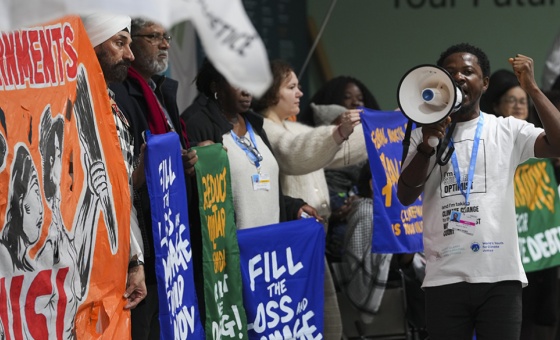This is the last article you can read this month
You can read more article this month
You can read more articles this month
Sorry your limit is up for this month
Reset on:
Please help support the Morning Star by subscribing here
BRITISH prisons “should be a stain on our collective conscience,” a former director of public prosecutions said today as he blamed successive governments for the overcrowding crisis
The criticism came after the new Labour government announced thousands of prisoners would be released earlier than planned with the system on the verge of “collapse.”
But controversial Imprisonment for Public Protection (IPP) sentences, where offenders remain in custody after serving their tariff until the Parole Board decides they are no longer a risk to the public, have not been included in the government’s sentencing review.
Despite this type of sentence being scrapped in 2012, around 3,000 inmates — who were given IPPs in the seven-year period they were in use — remain in prison on an open-ended tariff.
Prisons Minister Lord Timpson told the House of Lords on Wednesday: “It would not be appropriate to make changes in relation to IPP prisoners, because they are a different order of public protection risk.”
Lord Macdonald, president of the Howard League for Penal Reform, said that for decades administrations had acted like a brewery without making bottles “drunkenly good at increasing the flow of inmates, but without creating sufficient new spaces to house them.”
The independent cross-bencher warned that the plans to release prisoners earlier “buys just 18 months until the prisons are full again.”
He said the crisis was “foreseeable” and added: “Headlines before delivery, a sporadic arms race in punitive rhetoric — these were political choices made over many years by governments of all stripes, quite disconnected from the pragmatic delivery of justice.
“As everyone now sees, a particular low was the failure to increase prison capacity in the face of a rocketing prison population driven by deliberate public policy.
“We do not just have the highest prison population in western Europe; we also have some of the worst recidivism rates.
“For adults released from sentences of less than two years, no less than 50 per cent reoffend.
“Bereft of proper facilities for education or rehabilitation, strained to breaking point by austerity and neglect, ludicrously portrayed by some media outlets as holiday camps, and warehousing some of the most damaged people in our society, British prisons should be a stain on our collective conscience.”
The latest data by the Ministry of Justice shows that rates of self-harm and assaults are soaring in prisons, with one taking place every seven minutes.
From 12 months to March 2024, the rate of incidents in men’s prisons rose by 25 per cent. And the rate of assaults in prisons rose 19 per cent.
There was a total of 308 deaths in prison in the year to June, 85 of which were self-inflicted.
Howard League for Penal Reform chief executive Andrea Coomber said: “These shocking statistics tell us why the new government was absolutely right to take steps to ease pressure on the prison population, and why further action will be needed to change prisons for the better.
“Much of the focus of policy has been on the crisis of prison capacity, with the number of available cells at the foremost of people’s minds.
“These figures remind us that there is a crisis of human misery behind bars too.
“Exposing people to environments of rising violence and mental distress will do nothing to turn their lives around and away from crime.”
Inquest director Deborah Coles said: “We can all agree that we must do more to prevent harm in our society. Yet these record-high rates of self-harm and appalling numbers of deaths show the inherent violence and harms of prison.
“The new government has committed to building 14,000 new prison places. If more prisons are the answer, then the government is asking the wrong questions.
“Their plan does little to address why people end up in prison in the first place or how we can prevent further deaths.
“To meaningfully prevent harm in our society, we need to dismantle prisons and redirect resources into social welfare, housing, healthcare and community alternatives.”












